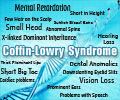When comparing full siblings, one of whom was exposed to acetaminophen in utero while the other was not, no increased risk of autism and ADHD was found.

Acetaminophen Use During Pregnancy and Children’s Risk of Autism, ADHD, and Intellectual Disability
Go to source). These findings, drawn from an extensive dataset encompassing over 2.4 million children born in Sweden, inclusive of siblings who were not exposed to the medication prenatally, have been released in the Journal of the American Medical Association (JAMA). The study was conducted by researchers from Drexel University’s Dornsife School of Public Health and Sweden’s Karolinska Institutet.
‘No increased risk of #autism and #ADHD was found when comparing full siblings, one of whom was exposed to #acetaminophen in utero while the other was not. #paracetamol’





Advertised as a pain reliever and fever reducer, the generic drug acetaminophen is the active ingredient in Tylenol and is an ingredient in versions of other drugs, such as Theraflu, Excedrin, and Mucinex, among others. Following each child up to 26 years after birth, the team found a small increased risk of autism, ADHD and intellectual disability in the overall population – as seen in similar previous studies that reported such a link.
Because siblings share a substantial portion of their genetic background, as well as similar exposure to many of the same environmental factors during development, comparing siblings helps to control for these shared factors that are otherwise hard to measure in epidemiological studies, the authors noted.
Discrepancies between Acetaminophen Users and Non-Users in Relation to Neurodevelopmental Risks during Pregnancy
“Users of acetaminophen differ from non-users in a number of ways and standard statistical analyses without a sibling control can’t control for all of the differences,” said co-senior author Brian Lee, PhD, an associate professor in Drexel’s Dornsife School of Public Health, fellow at the A.J. Drexel Autism Institute, and research affiliate at the Karolinska Institutet. “Sibling comparisons allow us to control for familial characteristics that might explain an apparent relationship between acetaminophen use during pregnancy and risk of neurodevelopmental conditions.”Using data from Sweden’s national health and prescription drug registers, the researchers gathered data on medication use throughout pregnancy for births from 1995 to 2019. Only about 7.5% of the study sample – 185,909 children – were exposed to acetaminophen during pregnancy. In previous studies, acetaminophen use during pregnancy varied greatly depending on the study setting; a study in Denmark reported 6.2% use while one study in the U.S. reported 10-fold higher use. Previous studies suggested that many pregnant people, who may benefit from acetaminophen, do not take it for fear of side effects, such as a 2019 study that surveyed 850 pregnant Swedish persons, in which more than 60% considered medication use during early pregnancy to be “probably harmful” or “harmful.”
Advertisement
The authors say all patients should follow the guidance from their physician on whether acetaminophen is safe for them and their future children.
Advertisement
“Our study and others suggest there are many different health and familial factors that are associated with both acetaminophen use and neurodevelopmental disorders,” said Lee. “Genetics likely play a role, but future work to elucidate this mechanism is crucial.”
In 2015, the U.S. Food and Drug Administration said that studies on over-the-counter pain medicines “are too limited to make any recommendations,” but noted that “severe and persistent pain that is not effectively treated during pregnancy can result in depression, anxiety, and high blood pressure in the mother.” A 2021 consensus statement in Nature Reviews Endocrinology by an international group of scientists and clinicians recommended that pregnant individuals “minimize exposure (to acetaminophen) by using the lowest effective dose for the shortest possible time” due to research suggesting that prenatal exposure to the drug could increase the risk of neurodevelopmental and other disorders.
Although the Drexel and Karolinska study used data on prescribed acetaminophen and reports from pregnant people to their midwives during prenatal care and may not capture all over-the-counter use in all patients, the findings represent data from a large representative sample and controls for many other factors that may be linked to neurodevelopmental disorders.
Reference:
- Acetaminophen Use During Pregnancy and Children’s Risk of Autism, ADHD, and Intellectual Disability - (https://jamanetwork.com/journals/jama/article-abstract/2817406)
Source-Eurekalert











